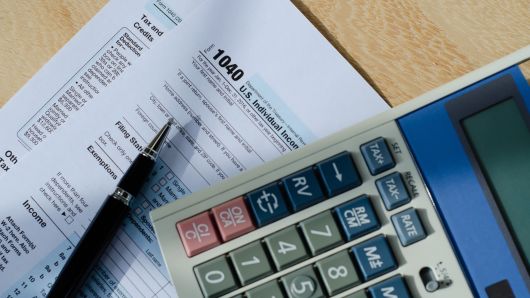
The U.S. Postal Service saw its overall on-time delivery performance slip during the month of September, despite commitments from Postmaster General Louis DeJoy that he would right the ship ahead of the presidential election.
With just 25 days until Nov. 3, Sen. Gary Peters, D-Mich., released a report detailing how the Postal Service’s delivery performance dropped again last month. On-time delivery rates remained more than 5 percent under regular performance prior to July 10, when DeJoy made operational changes at the federal agency that critics say led to the delays. Massive shipping delay over the summer led to a national uproar.
“The Postal Service’s performance has still not returned to its previous standards for on-time delivery, and these delays will continue to affect Michiganders and folks across the country,” said Peters, who serves as ranking member of the Senate Homeland Security Committee, which oversees the Postal Service.
Senate staffers said Sen. Ron Johnson, R-Wis., the chairman of the Senate Homeland Security Committee, was aware of Peters’ investigation. His office emphasized Johnson’s previous comments made during a Senate committee hearing: DeJoy should be commended for his work, he said at the time, not condemned.
The Postal Service credited the early September delays to a backlog over Labor Day weekend, as well as wildfires in the West and hurricanes and storms along the Gulf Coast. After a second drop in service later in the month, DeJoy pledged additional resources to deal with demand and promised that election mail would be further prioritized.
First-Class Mail on-time deliveries increased to nearly 86 percent in the last week of September, but that still remained 5.1 percent under the rates seen before the July changes administered by DeJoy.
Postal Service spokesman David Partenheimer said the agency would respond to a letter Peters sent DeJoy on Friday regarding his report, but he emphasized the on-time delivery increases the Postal Service saw in the last week of September.
“The latest service performance report presented to Congress this week shows service improvement for First-Class and Marketing Mail and can be attributed to our continued focus on the advancement of inventory, reduction in cycle times, and effective use of transportation,” he said, also reiterating the agency’s commitment to prioritizing election mail.
The delay in mail is also not necessarily widespread, but appears to most significantly affect the Midwest and area surrounding Washington, D.C., where the on-time delivery of first-class mail remained less than 80 percent in the last week of September. Detroit saw its delivery rate sit at 72.2 percent, while Chicago’s was less than 70 percent.
With average delays between one and three days, Mark Dimondstein, president of American Postal Workers Union, said postal workers “are dedicated to prompt and reliable and efficient services, so we’re always disappointed if the results are showing us that some of these policies that were put into place by management are still causing delays.”
Dimondstein emphasized that postal workers are doing everything they can to ensure election mail is being delivered on time.
“The employees are absolutely dedicated and are going to move heaven and earth to make sure people’s ballots get through the system, even with whatever other problems are going on,” he said, but adding that voters may need to be more “vigilant about voting early and voting quickly and leaving a little extra time.”
The ongoing mail delays have led to numerous court battles. Three federal judges separately ruled last month that the Postal Service must reverse changes made under DeJoy’s leadership, including the removal of mail sorting machines and blue mailboxes, limits on extra delivery trips and a reduction of overtime work.
All three cited the high need for election mail to be delivered on time during the pandemic.
“It is clearly in the public interest to mitigate the spread of COVID-19, to ensure safe alternatives to in-person voting, and to require that the USPS comply with the law,” U.S. District Judge Emmet G. Sullivan wrote in his opinion last week.
Days later, DeJoy committed additional resources to election mail.
“The U.S. Postal Service’s number one priority between now and the November election is the secure, on-time delivery of the nation’s Election Mail,” he said, reiterating a sentiment he shared with Congress when he testified before them about the delays. “The Postal Service, our unions, and the more than 630,000 postal employees are united in delivering on this sacred duty.”
The Postal Service’s general counsel Thomas Marshall warned numerous states in August that the high demand for mail-in voting may lead to delays. The letters he sent to states caused concern across the country as tens of millions of voters plan to cast their ballot via the mail during the pandemic.
But worries about the Postal Service are not only about election mail, as delays seen under DeJoy’s leadership had a massive ripple effect over the summer that affected the delivery of medications, burdened small businesses and further disconnected rural communities.
“When it comes to prescription drugs, business mail or absentee ballots, even a one day delay can have a serious effect,” Peters said. “That’s why I’m continuing to demand answers from the Postmaster General and pushing to reverse recent changes that so severely disrupted mail service.”
























